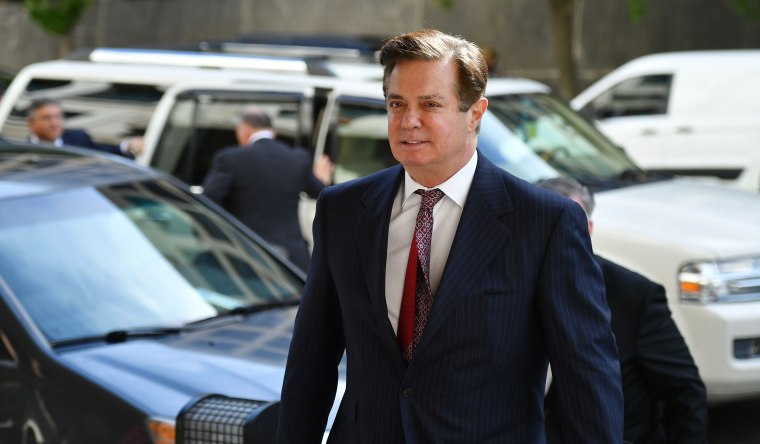There’s been intense speculation regarding whether Paul Manafort, President Donald Trump’s former campaign manager who stands indicted of a bevy of crimes in two federal jurisdictions, will “flip” and cooperate with special counsel Robert Mueller’s probe into possible Russian collusion by members of the Trump campaign.
As a former federal prosecutor who has dealt with hundreds of cooperating witnesses over my 30 years practicing law, I can tell you that deciding whether to bring a defendant on board as a cooperator is rarely a straightforward proposition. It’s a difficult and potentially life-changing decision for the defendant — but it can also be a challenging decision for the prosecutors. There are multi-layered tactical considerations well beyond the basic question of what evidence against others can the defendant bring to the table.
Cooperation typically involves allowing a defendant to plead guilty to reduced charges in exchange for the defendant’s truthful testimony before the grand jury and at trial. Sounds simple, right? It’s not.
As a former federal prosecutor, I can tell you that deciding whether to bring a defendant on board as a cooperator is rarely a straight-forward proposition.
The first and most important step in the cooperation calculous is vetting the information being offered by the defendant. During this process, corroboration is the name of the game. Investigators and prosecutors spend countless hours attempting to confirm or debunk a defendant’s account of events by poring through the defendant’s emails, text messages, social media footprint, financial documents, accounts and transactions, using information collected via forensic searches of cellphones and computers, GPS and cell-site location history, information from other witnesses with relevant knowledge of the defendant’s conduct, etc.
Once satisfied of the defendant’s truthfulness, the prosecutor must then ask whether the information is actually necessary to successfully prosecute other individuals. If the answer is no, then it makes little sense to strike a deal. If the answer is yes, then the prosecutor must evaluate the implications, for both their case and their credibility, if they decide to do business with this particular defendant.
Against this backdrop, let’s examine Manafort’s situation.
Does the Mueller team need Manafort’s testimony to forward the investigative ball? Since Mueller’s team doesn’t leak, we don’t know the answer to this question. But we can assume that — if Manafort did truthfully provide all he knows about possible Russian collusion with the Trump campaign —it could be quite consequential and enlightening.
So what are the tactical implications of a prosecutorial decision to do business with Manafort? This is where the rubber meets the road.
Even a casual review of the indictments pending against Manafort shows that he is in trouble. Separate grand juries in Washington, D.C., and Virginia have found probable cause that he allegedly committed numerous offenses, including conspiracy against the United States, false statements, tax evasion, and financial and bank fraud crimes.
But that’s not even the worst of it. After being indicted not once but twice, Manafort was then caught red-handed tampering with witnesses who could provide incriminating testimony against him at trial. Astoundingly, some of his obstructionist efforts were undertaken via phone and encrypted messaging apps while he awaiting trial on house arrest. Manafort’s efforts were so clumsy and transparent that he seems to have taken a chapter out of “Witness Tampering for Dummies.”
Tampering with witnesses is big-ticket mistake and extremely problematic for Manafort. First, it convincingly demonstrates his guilt of the underlying crimes.
Tampering with witnesses is big-ticket mistake and extremely problematic for Manafort. First, it convincingly demonstrates his guilt of the underlying crimes because you don’t have to persuade witnesses to lie for you if you did nothing wrong. I can tell you that it’s powerfully incriminating when you can prove to the jury that the defendant tried to get witnesses to lie for him.
But given that Manafort has shown himself willing to subvert the criminal justice system by urging witnesses to lie, how credible a witness would Manafort be for the prosecution? Jurors may well be wary of a man with allegedly so few scruples. Moreover, how does it reflect on the integrity of the prosecutors themselves that they are willing to do business with someone like Manafort?
I have seen prosecutions suffer by being vicariously “dirtied-up” by witnesses they call at trial. This is a real risk, and one can only be evaluated by a holistic understanding of the universe of evidence Mueller’s team has assembled against the targets of the investigation. In short, time will tell.
Given the circumstances, all roads could very well lead to the prosecutors benefitting from Manafort’s testimony whether he willingly cooperates or not.
There is one final approach that could be a win-win, at least for the Mueller team. If prosecutors want certain information that only Manafort can provide, but conclude they don’t want to suffer the tactical downsides of doing business with him as a cooperating witness, they could take him to trial, convict him and then call him as a witness in trials against others. Under this scenario, the prosecutors could present evidence through Manafort without ever reducing his charges or otherwise being perceived as condoning or excusing his obstructionist behavior.
So, the question of whether Manafort will or will not flip may be more consequential to Manafort than to Mueller. Indeed, given the circumstances, all roads could very well lead to the prosecutors benefitting from Manafort’s testimony whether he willingly cooperates or not.
Glenn Kirschner is a former federal prosecutor. He recently retired after serving as an U.S. Army JAG for more than six years and an assistant U.S. attorney for the District of Columbia for 24 years.

